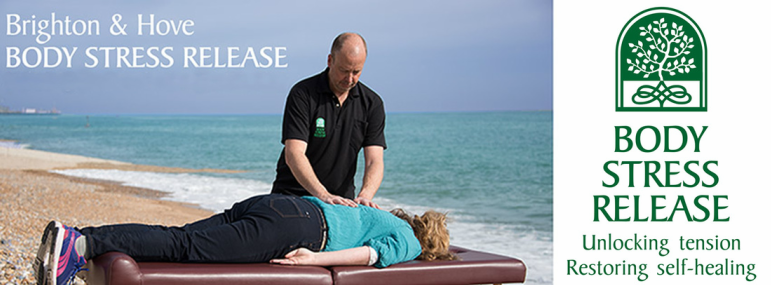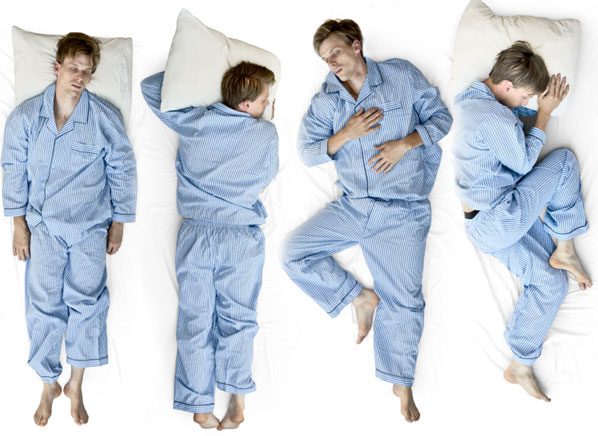Sleeping position is really important, poor position can lead to jaw problems, headaches, as well as back & neck problems.
Be careful how you sleep!
Few people are aware that sleeping in the wrong position causes dental problems and health problems in general, rendering many treatments vain.
Those who sleep on their stomach or their side place a static load on the jaw, traumatizing the chewing apparatus continuously. Over time this situation will cause disturbances throughout the body because of the important role played in posture by the lower jaw.
By sleeping in the wrong position, part of the body's weight falls on the lower jaw, forcing it laterally and unbalancing it.
Usually this is not so serious, as the sleeper often changes position, so that the pressure inflicted on the jaw does not remain constant.
Far more serious is the combination of sleeping stomach down and suffering from a misaligned Atlas, since the block of the first vertebra and the related limitation in the rotation of the head makes it necessary to sleep with one's head turned to the same side, causing constant pressure on the mandible!
Exerting prolonged pressure on the chewing apparatus obstructs blood flow, traumatizes teeth, gums, jaw joints, nerves and chewing muscles.
Since this imbalance continues for many hours every night, over time permanent damage will be done to the chewing apparatus, the teeth will deteriorate and the jaw deviate (malocclusion), with negative effects on the rest of the body.
Sleeping on one's stomach however cannot modify the alignment of the Atlas.
The most common symptom of an incorrect sleeping position:
Initially, after years of incorrect sleeping position, it can be difficult to get used to sleeping in a new, unaccustomed position. Yet the results that can be achieved will surely repay the effort in terms of regained health as well as dental costs!
Learning to sleep in the correct position will lead to many disorders involving the masticatory system being resolved spontaneously.
Few people are aware that sleeping in the wrong position causes dental problems and health problems in general, rendering many treatments vain.
Those who sleep on their stomach or their side place a static load on the jaw, traumatizing the chewing apparatus continuously. Over time this situation will cause disturbances throughout the body because of the important role played in posture by the lower jaw.
By sleeping in the wrong position, part of the body's weight falls on the lower jaw, forcing it laterally and unbalancing it.
Usually this is not so serious, as the sleeper often changes position, so that the pressure inflicted on the jaw does not remain constant.
Far more serious is the combination of sleeping stomach down and suffering from a misaligned Atlas, since the block of the first vertebra and the related limitation in the rotation of the head makes it necessary to sleep with one's head turned to the same side, causing constant pressure on the mandible!
Exerting prolonged pressure on the chewing apparatus obstructs blood flow, traumatizes teeth, gums, jaw joints, nerves and chewing muscles.
Since this imbalance continues for many hours every night, over time permanent damage will be done to the chewing apparatus, the teeth will deteriorate and the jaw deviate (malocclusion), with negative effects on the rest of the body.
Sleeping on one's stomach however cannot modify the alignment of the Atlas.
The most common symptom of an incorrect sleeping position:
- difficulty in keeping the mouth open for long,
- fanned, worn, mobile, hypersensitive teeth or with exposed necks,
- gum withdrawal and inflammation, periodontal pockets and periodontal disease,
- noise, clicks, pain and difficulty in opening and closing the mouth,
- pain and tension in the muscles of the face, especially in the morning on waking up,
- pain and difficulty in swallowing, moving the tongue, even talking,
- trigeminal neuralgia, headache, eye pain and tension,
- accidental, painful bites of the tongue and lips,
- pain in the temple, ears, neck, back, loins, legs, postural abnormalities,
- dizziness, vertigo, tinnitus, ringing, anxiety and neuroses.
Initially, after years of incorrect sleeping position, it can be difficult to get used to sleeping in a new, unaccustomed position. Yet the results that can be achieved will surely repay the effort in terms of regained health as well as dental costs!
Learning to sleep in the correct position will lead to many disorders involving the masticatory system being resolved spontaneously.


 RSS Feed
RSS Feed
